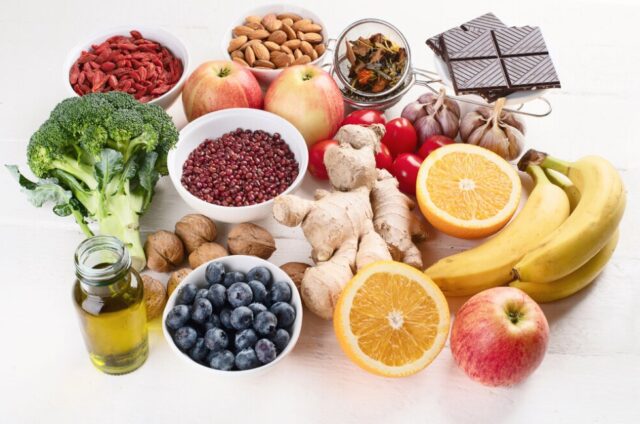Platelets are blood cells responsible for blood clotting and stopping bleeding, so when their count decreases too rapidly you could have a condition known as thrombocytopenia.
Attaining higher platelet counts may require eating foods rich in Vitamin C , baltod and iron. Other natural methods to increase platelet counts may include taking papaya leaf extract or eating kiwi fruit.
Vitamin C
Platelets are essential blood cells that work to form blood clots and stop bleeding during injury, while also contributing to red blood cell and bone marrow formation. Low platelet counts can result in serious bleeding and even death; to ensure adequate numbers, eating foods that naturally boost them – such as fresh fruits, vegetables, legumes and whole grains which contain nutrients that increase platelet counts can be very helpful in maintaining steady levels.
Vitamin C is packed with antioxidants and provides immune-enhancing properties, helping increase blood platelet count. Foods high in vitamin C include oranges, berries and pineapple. Furthermore, these sources contain vitamin K for blood clotting purposes while being an important source of iron for producing platelets.
Folate (folic acid) can help increase platelet count. According to the National Institutes of Health (NIH), folate is essential for blood clotting and platelet function, as well as being abundantly present in dark green vegetables like parsley, spinach, broccoli and celery – plus dried fruits such as raisins.
As well as eating food rich in nutrients, taking supplements that contain B12, A, and C may also help increase platelet counts. Before beginning any new supplement regimen it is advisable to speak to a healthcare provider first.
Iron
Thinking of how to increase platelets count, as platelets are blood cells which help the healing process by clotting and aiding blood clotting, but if their numbers decrease for whatever reason, a person may experience fatigue and easy bruising – known as thrombocytopenia. It could be brought on by infections, leukemia/cancer treatments, liver cirrhosis or certain medications; eating foods rich in iron, folate and vitamin C could boost your platelet count further.
Vitamin B 12 is another key nutrient in helping to increase platelets. It can be found in animal proteins like eggs, meat and chicken; vegan diet followers can consume fortified yogurt and cereals with Vitamin B 12 content for supplementation.
Pomegranates is an abundance of iron and folate, both essential for maintaining normal platelet counts. Furthermore, its antioxidant and immunity-enhancing properties make this fruit great to enjoy raw or add it to juices or smoothies for an immunity-boosting boost. Aim for at least one bowl twice or three times every week!
Pumpkin is packed with vitamin A, which supports platelet production in bone marrow. You can consume pumpkin in various forms: soup, stew or salad as well as baked goods and pudding. Additionally, try having two or three spoonfuls of freshly extracted pumpkin juice twice or thrice daily for best results; or take several raisins daily as they provide essential iron sources.
Folate
Folate (Vitamin B9) is a water-soluble nutrient that aids the body in producing DNA and RNA, while breaking down homocysteine, an amino acid which may have harmful side effects in your body. Folate is necessary to create healthy red blood cells during gestation as well as helping the fetus form correctly; additionally it’s believed to reduce risk factors related to heart disease, dementia and depression; it can be found naturally in many foods like kidney beans, oranges, peanuts and black-eyed peas, while supplements provide better absorption than their food sources!
Low platelet counts (thrombocytopenia) can occur for many reasons and could include viral fevers such as denguefever, bone marrow conditions such as Aplastic Anemia (AA), aspirin use or excessive alcohol intake. Although mild levels are usually symptomless, severe drops should be investigated by a haematologist should they appear on routine blood reports or cause symptoms like easy bruising and reddish-purple spots (petechiae). Lifestyle changes or diet modifications may help increase platelet count numbers further.
Vitamin B12
Platelets are blood cells responsible for blood clotting, so a low count can be fatally bleeding-inducing. Luckily, there are strategies available to increase platelet levels such as diet and supplements that contain iron and vitamin C as well as avoiding certain foods that reduce them – these strategies typically include eating foods that promote blood clotting like iron-rich food like spinach while limiting consumption of foods which lower platelet counts such as dairy.
Vitamin B12 is an essential nutrient to maintaining the health of both blood cells and nerve cells, as well as producing DNA, the genetic material present in each cell of your body. You can get this essential nutrient from animal products like meat, dairy and eggs or fortified foods; alternatively it may even be supplemented in some food products.
Folate (vitamin B9) can also help increase platelet count. Food sources of folate are preferable over supplements (with exception to pregnant women) as excessive dosage of folic acid may disrupt how your body makes vitamin B12. Try spinach, broccoli, liver and beans as good sources for this nutrient.
Beets and carrots contain ample vitamin A, which has been shown to improve blood platelet counts. You can enjoy them raw or add them into recipes. Pomegranate also provides ample iron as well as immunity-enhancing properties via its red diamond-shaped seeds that contain anti-inflammatory and immunity enhancing benefits; you can consume or drink its juice several times each day.







